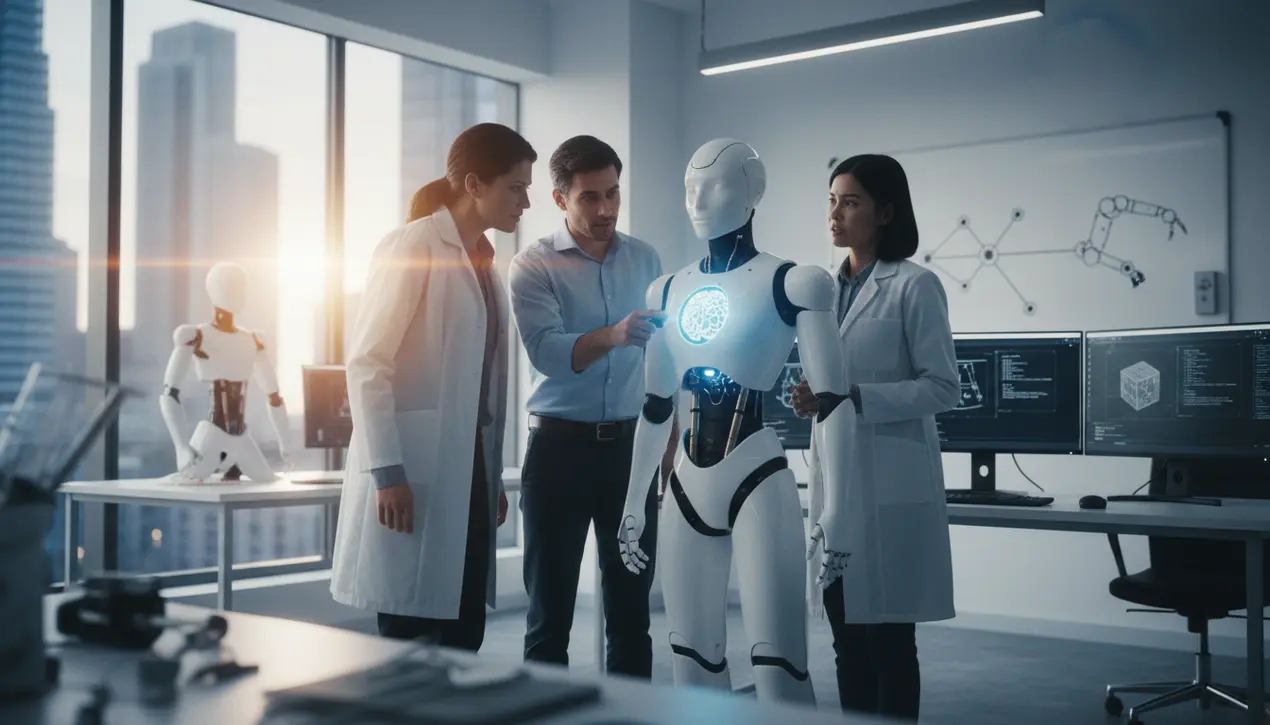- News
- ai
- Google DeepMind Hires Former CTO of Boston Dynamics as the Company Pushes Deeper Into Robotics

AIroboticsHumanoid Robots
Google DeepMind Hires Former CTO of Boston Dynamics as the Company Pushes Deeper Into Robotics
DA
Daniel Reed
3 hours ago7 min read3 comments
In a move that signals a seismic shift in the artificial intelligence landscape, Google DeepMind has made a pivotal acquisition of talent, hiring Aaron Saunders, the former Chief Technology Officer of Boston Dynamics, to spearhead its ambitious foray into embodied AI. This isn't merely a high-profile recruitment; it's a declaration of intent, a clear signal that the long-theorized convergence of large-scale AI models and physical robotics is transitioning from academic papers and lab demonstrations to a tangible, commercial reality.DeepMind's Chief Executive, Demis Hassabis, has publicly articulated a vision where their flagship Gemini model evolves beyond a digital assistant into nothing less than the central 'operating system' for physical robots. This concept, while futuristic, is grounded in a logical progression.Large language models like Gemini possess an unparalleled capacity for reasoning, planning, and understanding the nuance of human instruction. The missing link has been a reliable, low-level interface to the physical world—the ability to translate a complex command like 'tidy up the workshop' into a series of safe, coordinated, and context-aware physical actions.This is the chasm that Saunders is being tasked to bridge. His tenure at Boston Dynamics was not just about building robots that could perform stunning parkour; it was about mastering the brutal, unforgiving physics of the real world.Under his technical leadership, Boston Dynamics' Atlas and Spot robots became icons of dynamic stability and mechanical prowess, solving problems of locomotion, manipulation, and environmental interaction that had stumped roboticists for decades. His expertise in mechatronics, sensor fusion, and real-time control systems represents the exact complement to DeepMind's strengths in pure AI.The hiring suggests that DeepMind is moving beyond simulation and is now dead-set on deploying its AI agents in the messy, unpredictable, and high-stakes domain of physical hardware. The implications are profound.An 'AI operating system' for robotics, if successfully developed, could standardize and dramatically accelerate the entire field. Instead of every robotics company building its own proprietary stack from the ground up, they could build upon a foundational model like Gemini, specializing it for specific tasks in manufacturing, logistics, healthcare, or even domestic assistance.This is akin to the transition in computing from bespoke, single-purpose machines to the era of Windows or Linux, which created a universal platform for software innovation. However, the path is fraught with technical and ethical hurdles that Saunders and his new team must navigate.The 'sim-to-real' gap—the difficulty in transferring skills learned in a perfect digital simulation to the imperfect real world—remains a monumental challenge. Furthermore, the safety and reliability of powerful AI models controlling physical actuators in human environments is a primary concern; a misstep in code is one thing, a misstep in a 200-pound robot is another. The industry will be watching closely to see if DeepMind can successfully fuse the 'mind' of Gemini with the 'body' of advanced robotics, a synthesis that could ultimately redefine our relationship with technology and automate vast swathes of the physical economy.
#lead focus news
#Google DeepMind
#robotics
#Aaron Saunders
#Boston Dynamics
#Gemini
#operating system
#AI
Stay Informed. Act Smarter.
Get weekly highlights, major headlines, and expert insights — then put your knowledge to work in our live prediction markets.
Related News
Comments
Loading comments...
© 2025 Outpoll Service LTD. All rights reserved.